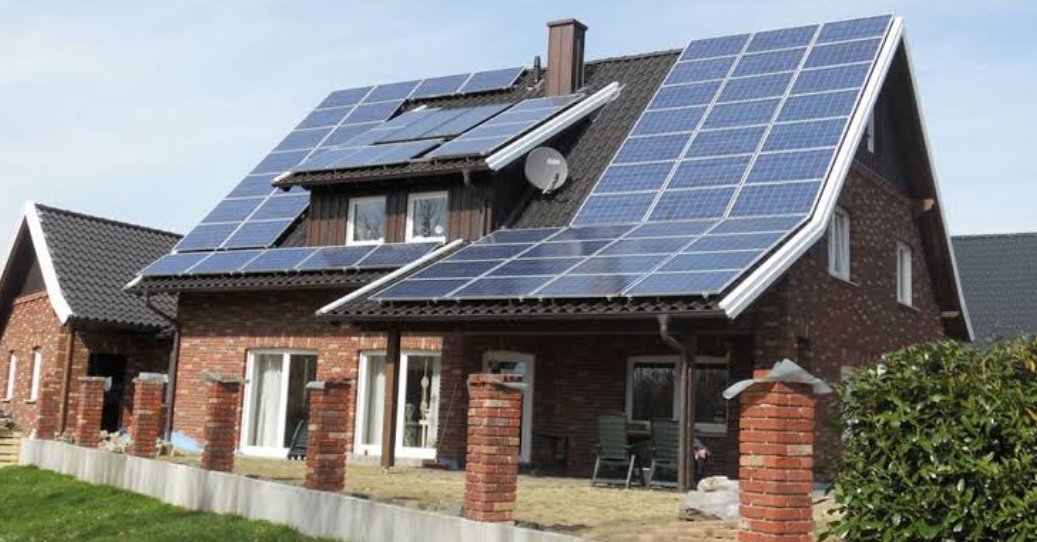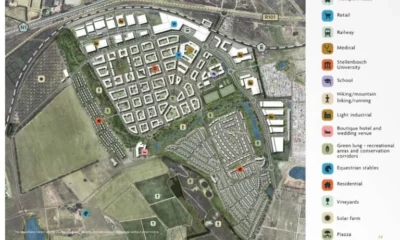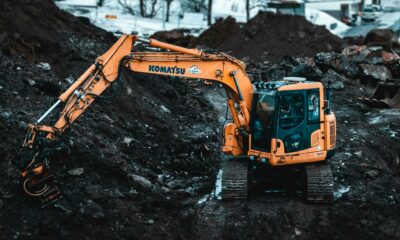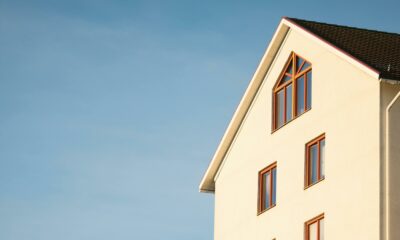Business
South Africans Embrace Off-Grid Living as Sustainability Becomes a Homeowner Priority

A growing number of South African homeowners are rethinking their relationship with traditional utilities—and choosing independence over reliance on municipal services. From installing solar panels to digging boreholes, households are making bold moves toward sustainable, off-grid living.
This lifestyle shift is one of the standout findings in the latest Absa Homeowner Sentiment Index (HSI), released for Q1 2025. The index, a long-running measure of homeowner confidence, has added a sustainability lens this year—and the results are telling.
The Off-Grid Movement Gains Ground
An overwhelming 76% of homeowners surveyed said they want to stop using government-supplied electricity. Almost half (49%) are also considering ways to replace municipal water sources. Instead, they’re opting for solar power, boreholes, filtration systems, and rainwater harvesting.
-
57% are now growing their own fruits and vegetables
-
42% have adopted solar energy
-
64% are looking into borehole and water filtration systems
-
53% are exploring rainwater harvesting
According to Nondumiso Ncapai, Managing Executive at Absa Home Loans, this signals a deeper shift in how South Africans define homeownership.
“People aren’t just looking for a house—they want a lifestyle that’s more sustainable and self-reliant,” she said.
Property Sentiment Remains Resilient
Even with macroeconomic uncertainty—including no interest rate cut in March and concerns over global policy—the overall homeowner sentiment only dropped slightly to 85%, down from 87% last quarter. It remains the second-highest reading in 10 years.
Other key insights from the Index:
-
Buying sentiment stayed firm at 77%
-
Selling sentiment dipped slightly to 49%
-
Investment sentiment held steady at a record-high 85%
-
Renovation sentiment decreased slightly due to rising costs
-
Buy-vs-rent sentiment declined by 4 points, with flexibility driving some to rent
First-Time Buyers Entering Younger
The average age of first-time homebuyers has dropped to 38, showing that more South Africans are planning earlier for long-term housing stability.
Provincially, Limpopo (93%), Free State (92%), and Northern Cape (92%) saw the highest homeowner confidence scores. Migration patterns remain active, with the Western Cape still attracting new residents, although at a slower rate.
Relief on the Horizon
Encouragingly, the South African Reserve Bank has announced a 0.25% interest rate cut, which is expected to provide relief to first-time buyers and inject some momentum into the market.
Paul Stevens, CEO of Just Property, believes the rate cut, combined with falling inflation, could boost affordability and confidence.
“This could be the push many potential buyers need—whether they’re entering the market, upgrading, or refinancing,” Stevens said.
While challenges remain, the consistent strength of buying and investment sentiment points to the long-term resilience of the South African property sector. And with sustainability top of mind, off-grid living is no longer a fringe idea—it’s fast becoming the new standard.
{Source: IOL}
Follow Joburg ETC on Facebook, Twitter , TikTok and Instagram
For more News in Johannesburg, visit joburgetc.com



























